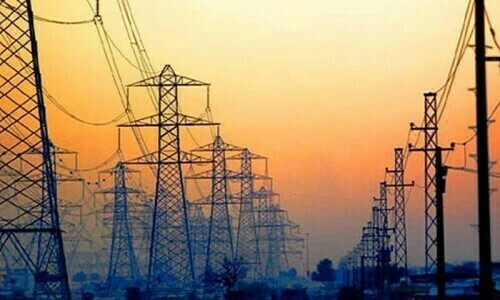THE PTI-led Khyber Pakhtunkhwa government has come up with a wide range of proposals for the next National Finance Commission award to make fiscal federalism more effective particularly for the less developed provinces.
Its suggestions for more fiscal devolution run counter to the centre’s approach to induce the provinces produce budget surpluses, share its expenditure burden and help it contain the consolidated fiscal deficit. KP wants a bigger piece of federal divisible pool for the provinces while focused on its specific demands.
The PML-government at the centre tends to lean on centralisation while KP exhibits its strong commitment to further devolution which will make reconciliation of differing views more difficult.
To garner support from other provinces, KP Finance Minister Muzafar Said says soon a Jirga comprising representatives of all major political parties will be convened to evolve a consensus on the next NFC award
To garner support from other provinces, KP Finance Minister Muzafar Said says soon a Jirga comprising representatives of all major political parties will be convened to evolve a consensus on the next NFC award.
The KP government is also critical of the deviation from the 7th NFC Award framework and has sought amendments to the criteria for distribution of resources under the federal divisible pool, and inclusion of new taxes, and removal of the cap on net hydro profits paid to the province.
Mr Said has demanded early notification of members to convene the much-awaited NFC meeting.
After the 18th amendment in 2010, all social sector functions have been devolved to the provinces.The 7th NFC Award in 2009 raised the provinces’ share in the federal divisible pool to 57.5pc from 49pc. The federating units want this share increased further because it not enough to fund added tasks.
In the 7th NFC Award (2009-14), multiple indicators were included in the criteria for distribution of resources among the provinces. The traditional formula for horizontal distribution of resources was population, which was changed by the PPP-led coalition government. About 82pc distribution was made on population basis, 10.3pc on poverty and backwardness, 5pc revenue collection/generation and 2.7pc on inverse population density (IPD) in the five years under the 7th NFC award.
Now KP has come up with proposals to make further changes in the distribution criteria: increase the weightage of poverty/backwardness from the existing 10.3pc to 15pc; and the provinces that lag in investments should be given a weightage of minimum 10pc.
These proposals would mainly benefit KP and Balochistan. Consequently, the population weightage will drop to 67.3pc.
KP has also objected to the federal government’s move to include AJK, Fata and Gilgit-Baltistan in the horizontal distribution of resources under the NFC. It says this inclusion requires constitutional amendments. The province has made it clear to the federation that it should give resources to these units from its own resources.
To manage fiscal deficit, the federal government has imposed a petroleum development levy (PDL) worth Rs122bn and the Gas Infrastructure Development Cess worth Rs120bn. The amount collected from consumers under these two levies is not part of the federal divisible pool. KP is now demanding that PDL and GIDC collection be included in the pool. However, this will require a constitutional amendment.
The KP government is also demanding the imposition of federal excise duty (FED) on oil production but it has been opposed by the federal government. Under Article 161 of the Constitution, provinces are entitled to the net FED proceeds on oil. Royalty on LPG is another area that the provinces want included in the divisible pool.
Other KP demands include: an increase in provinces’ share to 80pc from existing 57.5pc to manage responsibilities transferred to the provinces under the 18th amendment; increased compensation for violence in the province from the existing 1pc to 5pc; Rs66bn for KP under the National Action Plan; linking the uncapping of net hydro profits (NHP) to the 8th NFC Award, and KP payments of past arrears, put at Rs148bn.
The federal government owes
KP Rs29bn under oil and gas royalty, while well Rs119bn is due for water royalty in the light of 2005 agreement.
Published in Dawn, Business & Finance weekly, February 1st, 2016










































